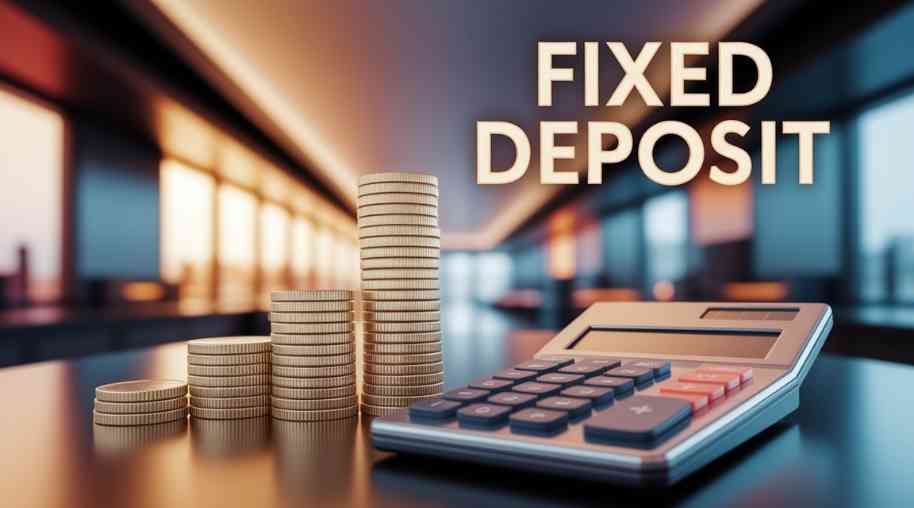FD Full Form-Fixed Deposit
by Shashi Gaherwar
0 2240
Fixed Deposit: Features, Benefits, and How to Maximize Your Returns
Introduction
A Fixed Deposit (FD) is one of the most popular investment options in India, offering low-risk returns with fixed interest rates. Banks and financial institutions provide FD schemes where investors can deposit a lump sum for a fixed tenure and earn interest at predetermined rates. In this article, we will explore the features, benefits, types, interest rates, tax implications, and strategies to maximize your FD returns.

What is a Fixed Deposit?
A Fixed Deposit (FD) is a term deposit where you invest a specific amount for a chosen duration, earning interest at a predetermined rate. Unlike savings accounts, FDs offer higher interest rates and fixed returns. Investors cannot withdraw the funds before maturity without incurring a penalty.
Features of Fixed Deposits
- Fixed Tenure: The tenure ranges from 7 days to 10 years, based on investor preference.
- Guaranteed Returns: Since FD interest rates are fixed, the returns are predictable.
- Flexible Investment Amount: You can start an FD with as little as ₹1,000, depending on the bank.
- Loan Against FD: Investors can avail of loans against their fixed deposits.
- Auto-Renewal Option: Many banks offer automatic renewal of FDs upon maturity.
- Premature Withdrawal: Allowed with a penalty on interest earnings.
Benefits of Investing in Fixed Deposits
- Low-Risk Investment: FDs are safe and not affected by market fluctuations.
- Higher Interest Rates: Compared to savings accounts, FDs provide better returns.
- Regular Income Option: Investors can choose monthly, quarterly, or annual payouts.
- Tax-Saving Benefits: Certain FDs qualify for tax deductions under Section 80C.
- Senior Citizen Perks: Senior citizens enjoy higher interest rates on FDs.
Types of Fixed Deposits
- Regular Fixed Deposit: Standard FD with fixed interest rates and tenure.
- Tax-Saver FD: Offers tax benefits under Section 80C with a 5-year lock-in.
- Senior Citizen FD: Provides higher interest rates for senior citizens.
- Recurring Deposit (RD): A monthly investment option with FD-like returns.
- Flexi Fixed Deposit: A combination of savings and FD, allowing liquidity.
How FD Interest Rates Work
- Variable Rates: Interest rates vary based on tenure and bank policies.
- Longer Tenures: Longer tenures usually offer higher interest rates.
- Senior Citizen Rates: Senior citizens get an additional 0.25% to 0.75% interest.
- Leading Banks: Banks like SBI, HDFC, ICICI, and Axis Bank offer competitive FD rates.
Tax Implications of Fixed Deposits
- TDS on Interest: FD interest earnings above ₹40,000 (₹50,000 for senior citizens) attract TDS at 10%.
- Tax-Saving FDs: Investors can claim tax deductions up to ₹1.5 lakh under Section 80C for tax-saving FDs.
How to Maximize FD Returns
- Compare Interest Rates: Choose banks or NBFCs with higher FD rates.
- Select the Right Tenure: Opt for longer tenures for better returns.
- Avoid Premature Withdrawal: To prevent penalty charges on interest.
- Invest in Multiple FDs: Diversify across different banks and tenures.
- Reinvest Earnings: Opt for cumulative FDs where interest is compounded.
A Fixed Deposit is a safe, reliable, and profitable investment option, offering guaranteed returns and low risk. Whether you're a salaried professional, a retiree, or a business owner, FDs provide a secure financial cushion. By choosing the best FD schemes and interest rates, you can maximize your returns and achieve your financial goals efficiently.
Further Learning Resources
If you’re passionate about building a successful blogging website, check out this helpful guide at Coding Tag – How to Start a Successful Blog. It offers practical steps and expert tips to kickstart your blogging journey!
For dedicated UPSC exam preparation, we highly recommend visiting www.iasmania.com. It offers well-structured resources, current affairs, and subject-wise notes tailored specifically for aspirants. Start your journey today!

Share:









Comments
Waiting for your comments